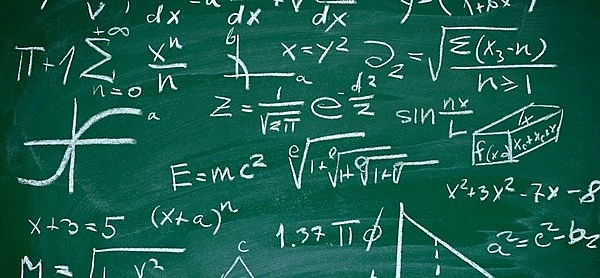Top 10 Most Famous Mathmaticians Of All Time
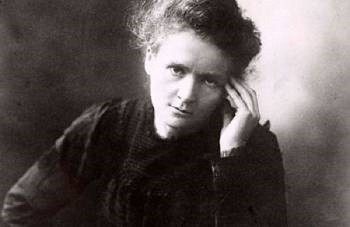 Top 10 Most Famous Chemists Of All Time Top 10 Most Famous Chemists Of All Time Are you surprised with achievements made by famous chemists in the world? Their inventions have made our life much more civilized and have been widely ... |
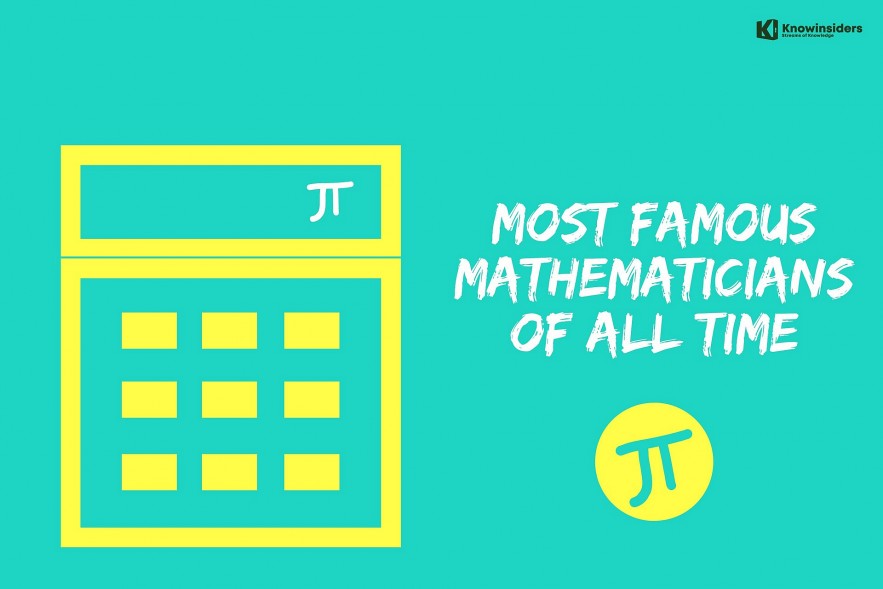 |
| Top 10 Most Famous Mathmaticians Of All Time. Photo KnowInsiders |
Mathematics is the study of numbers, structure, space and change. Every area of life is related to mathematics. Check out top 10 the world's most famous mathematicians in honor of their important contributions to human development. These are all famous names that we have come into contact with since school time because they are the fathers of extremely familiar mathematical formulas.
Top 10 Most Famous Mathmaticians Of All Time
1. Isaac Newton (1642 - 1727)
Isaac Newton is not only a mathematician but also a prominent physicist, philosopher, astronomer of humanity. In the field of mathematics, he, along with Gottfried Leibniz, researched and developed differential and integral calculus. He also introduced a general Newtonian binomial.
What Is Calculus?
At its most basic, calculus is all about studying the rate of change of a quantity over time. In particular, it can be narrowed down to the study of the rate of change and summation of quantities. The two categories of calculus are called differential calculus and integral calculus. Differential calculus deals with the rate of change of a quantity such as how the position of an object changes compared to time. Integral calculus is all about accumulation, or summing up infinitely small quantities. The fundamental theorem of calculus is what connects these two categories. This theorem guarantees the existence of antiderivatives for continuous functions. You can learn more about the differential and integral calculus by reading the information below. We'll then look into how this affects curves. When looking into differential calculus and trying to understand it, it's important to compare it to algebra. Algebra is all about working out the slope of a straight line between two points. But with calculus, it's all about the slope of a curve, which means the slope at one point will be different than the slope at another point further along the same curved function. By looking closely at the slope of the line between the two points on the curve, the rate at which the slope changes can be calculated. This is called finding the derivative of a function at a point. What Is Calculus Used For? Calculus is used in all branches of math, science, engineering, biology, and more. There is a lot that goes into the use of calculus, and there are entire industries that rely on it very heavily. For example, any sector that plots graphs and analyzes them for trends and changes will probably use calculus in one way or another. There are certain formulae in particular that demand the use of calculus when plotting graphs. And if a graph's dimensions have to be accurately estimated, calculus will be used. It's sometimes necessary to predict how a graph's line might look in the future using various calculations, and this demands the use of calculus too. Engineering is one sector that uses calculus extensively. Mathematical models often have to be created to help with various forms of engineering planning. And the same applies to the medical industry. Anything that deals with motion, such as vehicle development, acoustics, light and electricity will also use calculus a great deal because it is incredibly useful when analyzing any quantity that changes over time. So, it's quite clear that there are many industries and activities that need calculus to function in the right way. It might be close to 350 years since the idea was invented and developed, but its importance and vitality has not diminished since it was invented. |
2. Blaise Pascal (1623 - 1662)
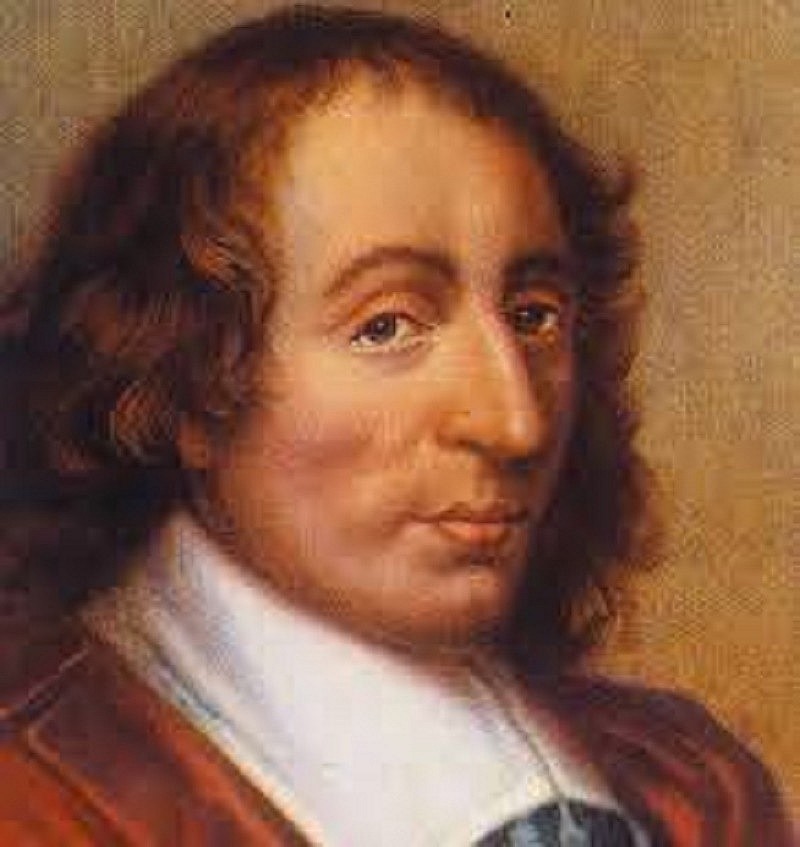 |
| Blaise Pascal |
Blaise Pascal was a talented French mathematician, physicist, inventor and Christian philosopher. He was the first to research and invent the mechanical calculator and was known as the Pascal calculator. In 1653, he wrote Treatise on Arithmetic Triangles describing a form called Pascal's Triangle.
READ MORE: Top 10 Countries in the World for Scientific Research 2023/24
Application of Pascal programming in real life:→ Programming applications, software,... → Programming moves for robots. → Pascal's Triangle Application: → The premise for the birth of 7 memorable equality constants. → Used to prove Newton's binomial. |
3. Fibonacci (1170 – 1250)
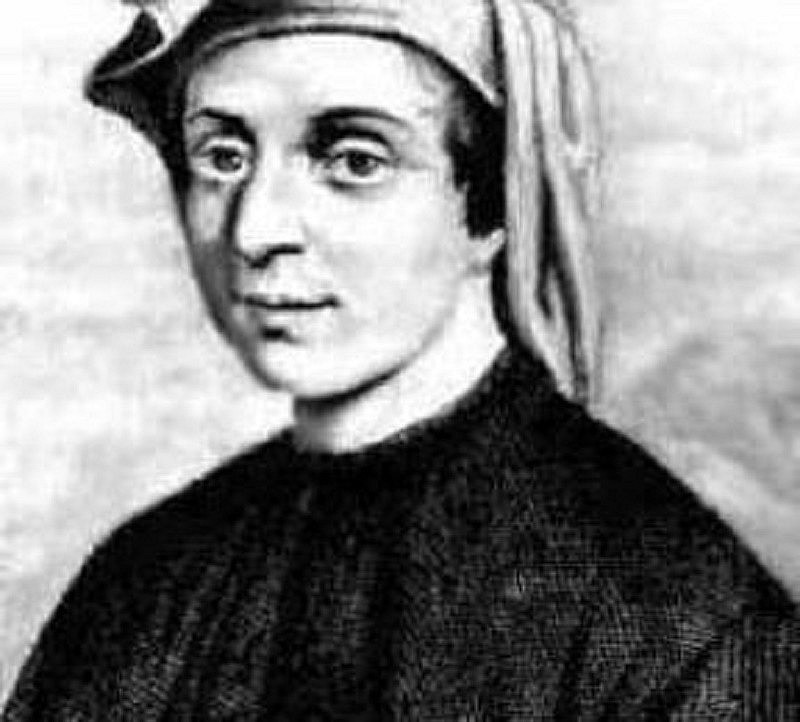 |
| Fibonacci |
Fibonacci was a brilliant Italian mathematician. Although he was not the inventor, he was credited with spreading the popular Hindu-Arabic numeral system throughout Europe. The modern series of numbers bears his name, and the Fibonacci numbers are still in common use today.
READ MORE: Top 10 Scariest Science Experiments In The World History
Application of the Fibonacci sequence in nature and engineering:It is a coincidence that the Fibonacci sequence coincides with the number of petals of most flowers. Among the numbers: 3, 5, 8, 13, 21, 34, 55 or 89. Lilies have 3 petals, yellow ranunculus flowers have 5 petals, common cassava flowers have 8 petals, and marigold flowers have 13 petals. , daisies have 21 petals, chrysanthemums usually have 34, or 55, or 89 petals. The Fibonacci sequence is considered the golden ratio for the standard of beauty in art and architecture and finance. |
4. Thales (624 – 546 BC)
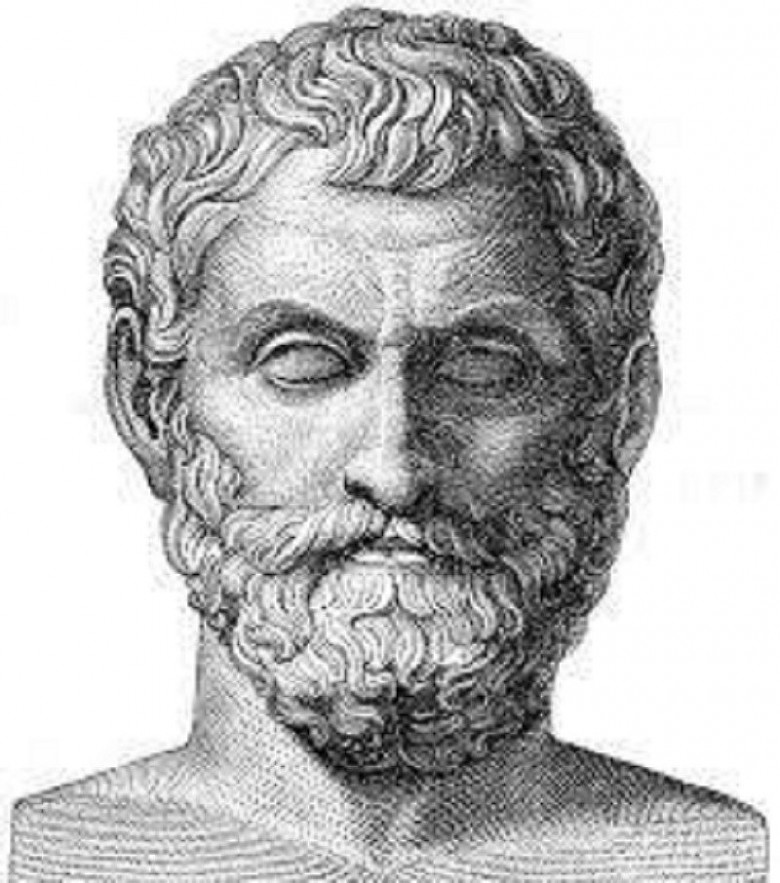 |
| Thales |
Thalès de Milet was a Greek philosopher and mathematician who lived before Socrates, the leader of the seven Greek sages. He is also considered the first philosopher in ancient Greek philosophy, the "father of science".
Thales was a mathematician and one of the seven famous philosophers of Greece. He had great merit in the field of mathematics when he invented a mathematical theorem and named himself, that is Thales' law.
Application of Thales theorem in life:→ Measure the height of Khufu's pyramid. → Measure the distance when it is not reachable: the distance of the river, the height of the mountain,... |
5. Pythagoras (580 to 572 – 500 to 490 BC)
Greece is the cradle of the most talented people in the world and the name Pythagoras is no exception. Pythagoras was a Greek philosopher and founder of a religious movement called the Pythagorean doctrine. He is generally known as a great scientist and mathematician. In Vietnamese, his name is often transliterated from French to Pita-go.
Pythagoras, the famous Greek mathematician, philosopher, and scientist in ancient times. His name and basic mathematical theorems are always found in textbooks. With the famous theorem named after him "In a right triangle, the square of the hypotenuse is always equal to the sum of the squares of the other two sides" is considered a basic premise in geometry and made him famous around the world.
6. Alan Turing (1912 - 1954)
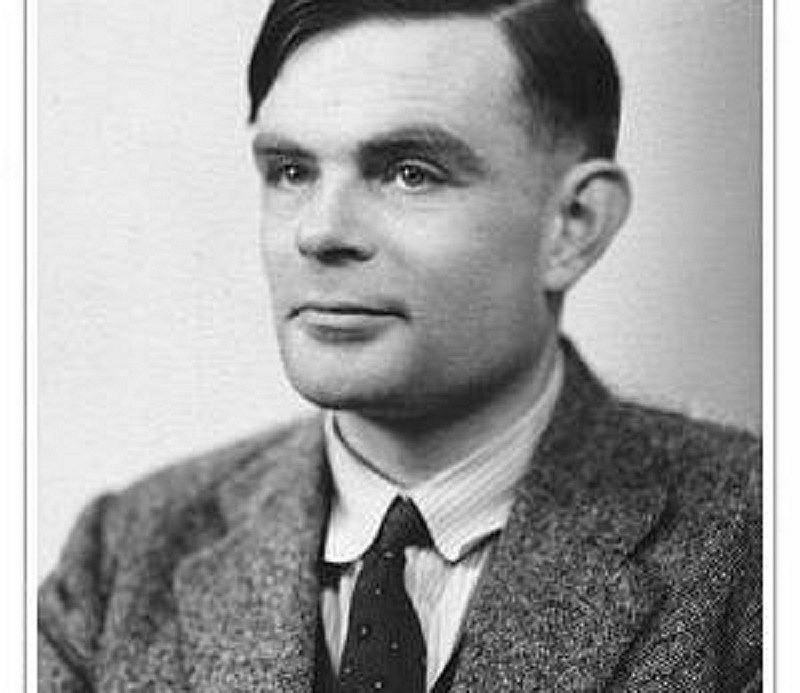 |
| Alan Turing |
Alan Mathison Turing was an English mathematician, logician and cryptologist often considered the father of computer science. The Turing test is one of his contributions to artificial intelligence: it raises the question of whether machines will ever achieve consciousness and be able to think.
| Applications of the Turing Test: Inspiring scientists to research future supercomputers and artificial intelligence. |
7. Andrew Wiles (April 11, 1953)
Andrew Wiles was an English mathematician who was the first to prove Fermat's great theorem. The year of his birth and death is unknown. Andrew John Wiles was an English mathematician, known for being the first to prove Fermat's great theorem.
Wiles was introduced to Fermat's great theorem when he was 10 years old. In the years that followed, he tried to find a way to prove the theorem using traditional textbook methods. However, at the beginning of his PhD period he switched to the study of elliptic functions, under the guidance of Professor John Coates.
During her time as a PhD student at Clare College in Cambridge, Wiles was also an assistant professor at Harvard University. In 1980, when he received his doctorate, Wiles went to work for a time in Bonn before coming to the United States. In 1981, he became a professor at Princeton University.
8. René Descartes (1596 - 1650)
René Descartes was a French mathematician, scientist, and philosopher.
He is known as the father of modern philosophy. He has made great contributions to the field of mathematics. It is the systematization of analytic geometry, the description of powers, the theory of equality. He was a pioneer in establishing modern mathematics with the symbols x, y, z as unknowns.
Descartes' most important contribution to mathematics was the systematization of analytic geometry, the system of perpendicular coordinate axes named after him. He was the first mathematician to classify curves according to the properties of the equations that make them up. He also made contributions to the theory of equality.
Descartes was also the first to use the last letters of the alphabet for unknowns and to use the first letters of the alphabet for known values. He also invented a notation system for describing powers of numbers (in the expression x², for example). On the other hand, he himself devised a method, called the Cartesian sign method, to find the number of positive and negative solutions to any algebraic equation.
9. Euclid (3rd century BC)
Euclid, sometimes also known as Euclid of Alexandria, lived in the 3rd century BC, was a prominent mathematician of ancient Greece. He is known as the "father of geometry". It can be said that most of the knowledge of geometry at the lower secondary level today has been systematically and precisely mentioned in the 13-book Foundations series written by Euclid, which is also the most valuable book series in the world. most influential in the History of Mathematics from its publication to the late 19th and early 20th centuries.
10. Carl Friedrich Gauss (1777 - 1855)
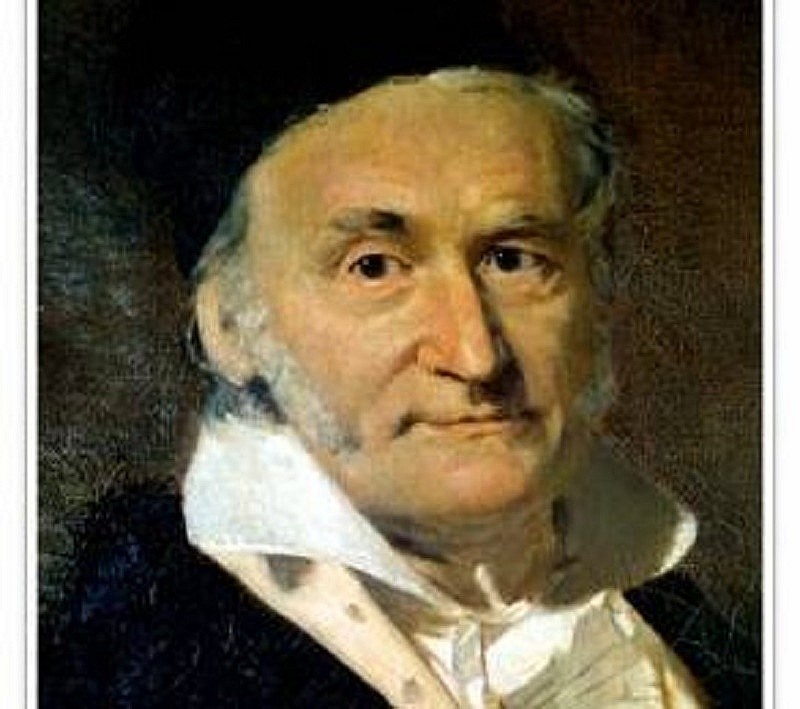 |
| Carl Friedrich Gauss |
Carl Friedrich Gauss is a talented German mathematician. He is known as the prince of mathematicians. His contributions in the field of mathematics include: number theory, analysis, differential geometry. He is widely known for proving that every polynomial with the same number of sides as Fermat's primes can be constructed with a compass and a ruler.
Dubbed the "prince of mathematicians", with a profound influence on the development of mathematics and science, Gauss ranks alongside Leonhard Euler, Isaac Newton and Archimedes as great mathematicians. greatest in history. Gauss made many very important contributions to algebraic mathematics and number theory. In addition he introduced the Gaussian constant, studied the phenomenon of magnetism, and his name was given to the unit of magnetic field.
 How to Convert Milligrams to Teaspoons in Math and Real Life How to Convert Milligrams to Teaspoons in Math and Real Life A standardized measurement system for recipes would make cooking a much simpler process, especially if you're looking to cook recipes from around the world. Check ... |
 10 Best Free Online Learning Sites for Math, Data Science and Engineering 10 Best Free Online Learning Sites for Math, Data Science and Engineering If you want to learn math, science, or engineering but don't have time, let's discover these top 10 Free Online Learning Sites for Math, Data ... |
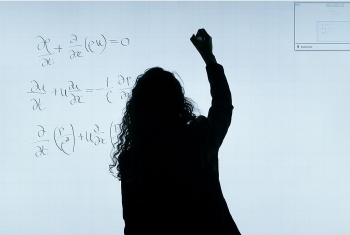 Researcher Shows Ways to Learn Math in XXI Century Researcher Shows Ways to Learn Math in XXI Century Math is among the most challenging topics students have to learn while in school. |


